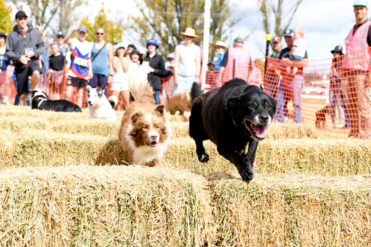The housing order in place in the Restricted Area of the Golden Plains Shire to help manage detections of avian influenza will end at 11.59 pm on Monday 19 October.
Victoria’s Chief Veterinary Officer Dr Graeme Cooke said the end of the housing order will coincide with a reduction in the size of the Control Area to reflect the progression of the response to eradicate avian influenza detections in the Shire.
‘While this is another step in the right direction I strongly encourage bird owners in the Golden Plains Shire to continue to practise good biosecurity and take steps to stop their poultry mixing with wild birds.
‘The end of the housing order and the refining of the Control Area reflects the progression in the management of this outbreak and therefore a reduction in restrictions placed on bird owners.
‘As we have said throughout this response we are taking an incremental approach to our management to be confident that the threat of avian influenza has been eliminated and that if the situation changes we can respond quickly.
‘Information and intelligence gathered so far, along with no new detections, means we are able to take this step.
‘Our surveillance operations, including swabbing and testing birds, will also continue to monitor the viral load of avian influenza in the area.
‘Other measures will remain in place, however, until the end of the outbreak, so please check the Agriculture Victoria website to understand what those are,’ he said.
‘We are grateful for the efforts of both industry and the community for their assistance with this response, whether it has been supporting our ongoing surveillance efforts or reporting dead or sick birds to the Emergency Animal Disease Hotline.’
Dr Cooke said all poultry and captive bird owners must continue to follow good biosecurity practices in order to prevent a recurrence of the disease at any time. These include:
- keep drinking water and feed away from wild birds, pets and vermin
- ensure birds’ feed and water is clean from droppings or animal waste
- keep domestic birds away from potentially contaminated water sources such as streams, dams, ponds
- feed your birds good quality feed from a reputable feed-mill
- regularly clean your chicken coop, including feeders, drinkers and equipment
- frequently replace nesting materials.








